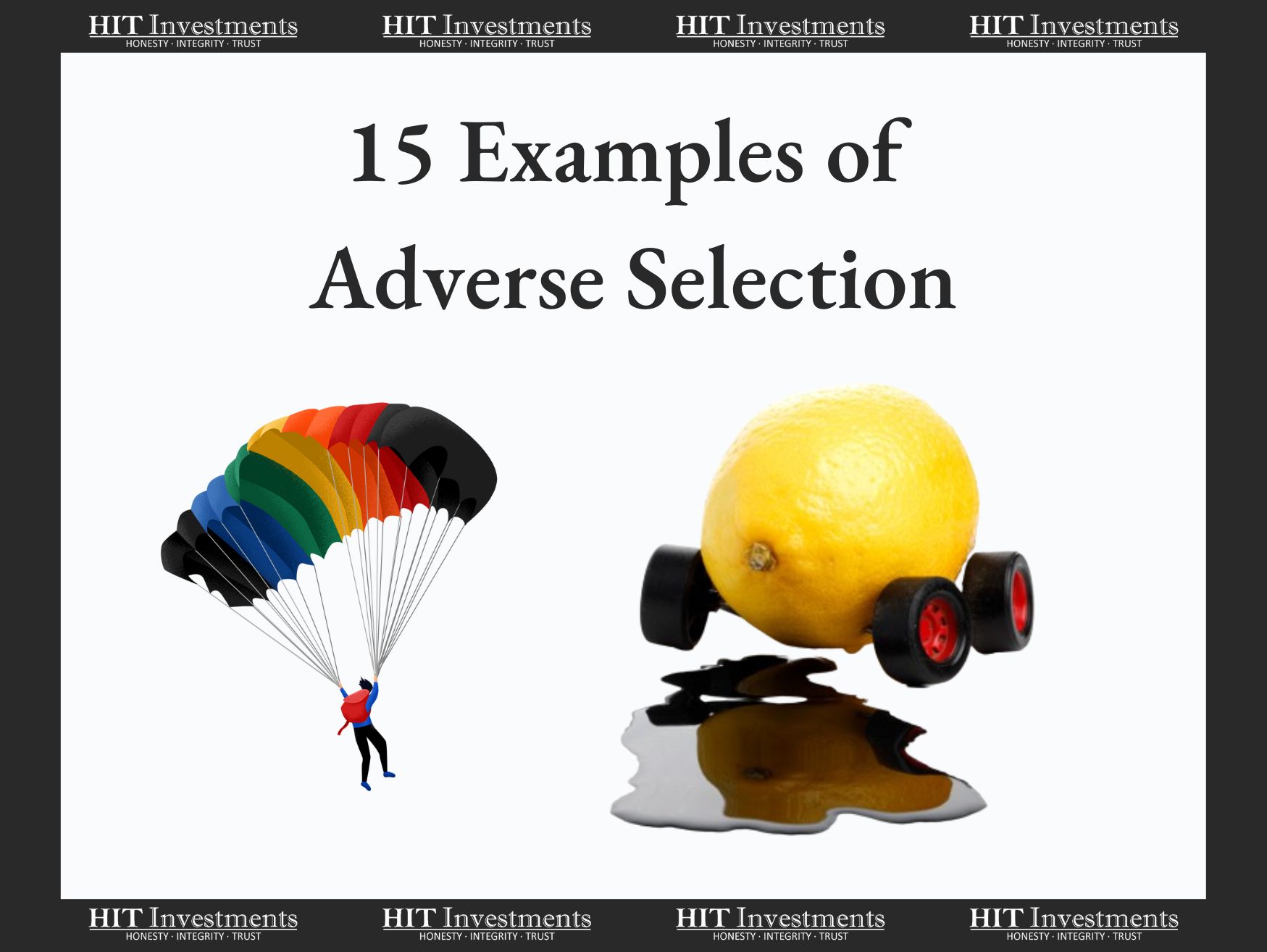Adverse Selection Bias is when one person in a transaction has more information than the other. It is a specific subset of selection bias and has recently been on my mind. A couple weeks ago, in my investment research for HIT Capital I found a stock growing 25% a year and trading at a P/E of 5. To translate that into English, I found a stock trading 4x cheaper and growing 8x faster than the average US company. But in my next level of research, I learned the stock’s largest owner, who owns 41% of the stock, was selling down their position. I also learned that this owner knows more about this business than anyone else, especially me. What should I do?
Sometimes it is impossible to know as much as the party we are wanting to transact with and the best thing we can do is make ourselves aware of the imbalance and factor that into our decision. Maybe you have dealt with something similar. While my sister was editing this blog post she shared with me how some of their close friends chose to leave their church and when she asked why, their response was that someone they respected was also leaving. While this intrigued her, it wasn’t enough information for her family to make the same decision and she knew it. For her friends, it was.
In my situation with buying or not buying a stock I continued to research to see if there was a logical explanation why the owner was selling. Sure enough, I found that they owned the stock through an investment fund that had a specified lifetime, and that fund’s life was coming to an end. Thus in this situation I chose to buy stock from someone who knows much more than me. Now will that result in a positive outcome? I don’t know yet, but if you want to find out, you can follow along through my HIT Capital semi-annual updates.
As I tried to structure my own process of dealing with Adverse Selection Bias, I wrote down a few steps to help work through it rationally:
- Recognize Adverse Selection exists, be humble in your own intelligence, and when you see it, acknowledge it.
- Train yourself on examples of Adverse Selection (see 15 of them below)
- Once you acknowledge the Adverse Selection situation exists, take your time with the decision.
- Time is on your side (More on our problems with thinking fast in this post)
- Sometimes taking no action is the best option (more on that in my action bias post)
- Now that you have time, if your are the one with less knowledge, you have options:
- You can do more research, possibly find someone who has more knowledge than your counterparty and is unbiased.
- You can ask your counterparty why they are selling, maybe they will tell you the truth.
- Knowingly go through with the transaction. Some decisions aren’t worth spending extra time on and the risk is worth it.
To help with your awareness of Adverse Selection, I’ve listed out 15 examples below (You may get the gist after the first few):
- Social Media Platforms:
- Users with negative experiences or extreme opinions may be more likely to engage on social media, creating a distorted perception of overall public sentiment.
- Used Cars:
- The seller may have knowledge of hidden defects and still list the car at a seemingly normal price which may lead us to purchase a “lemon.”
- Peer to Peer Real Estate:
- Investors with additional information about specific properties may have a selective advantage, creating adverse selection for other participants using the real estate crowdfunding platform.
- Public Elections:
- Voters with strong ideological views or vested interests may be more likely to participate in elections, influencing the outcome disproportionately compared to those with less extreme views.
- Life Insurance:
- Adrenaline junkies doing extreme white water kayaking, ice climbing, mountain biking, and backcountry skiing are at an advantage over the life insurance provider when purchasing insurance.
- Company Pension Plans:
- Employees who anticipate a short lifespan or already have health issues may be inclined to take a lump sum payment rather than the employer sponsored annuity plan.
- Real Estate Investments:
- Sellers with knowledge of undisclosed property issues may be more likely to sell, resulting in adverse selection for buyers.
- Stock Trading:
- Investors with insider information may engage in trades based on privileged knowledge leaving the opposite party in the transaction at a disadvantage.
- Collectibles:
- Sellers with insider knowledge about the value of collectibles may disproportionately benefit, resulting in Adverse Selection for buyers.
- Employee Benefits:
- Employees with chronic health conditions or higher healthcare needs are more likely to choose jobs with employer-provided health insurance, increasing the average health care costs for employers.
- Job Applicants:
- Individuals with poor work performance or undesirable traits are more likely to apply for jobs with less stringent screening processes, potentially lowering the overall quality of applicants for employers.
- Online Dating:
- People with inflated appearance or fabricated personalities may be more likely to use dating apps, potentially discouraging others from seeking genuine connections.
- Charitable Donations:
- Fraudulent charities or organizations exploiting emotional appeals may attract more donations than those with genuine causes, diverting resources from legitimate organizations.
- Crowdfunding Campaigns:
- Projects with exaggerated goals may attract more funding than those with realistic goals and genuine solutions, leaving backers potentially disappointed.
- Clinical Trials:
- Patients with severe illnesses or those who haven’t responded to other treatments may be more likely to volunteer for clinical trials, potentially skewing the results of the trial.



Leave A Comment